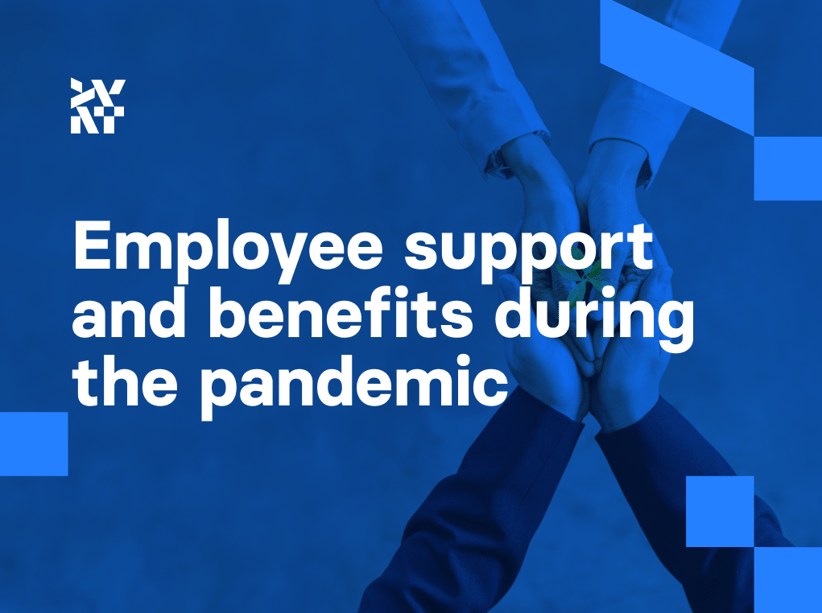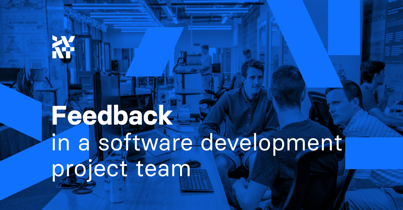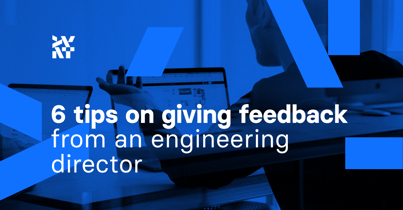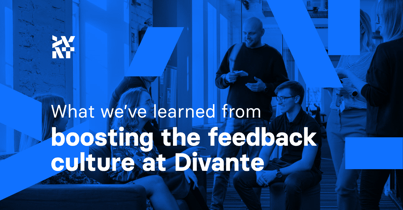The new, not so brave, world made us start from scratch in many fields. One of the most prominent is the job market. The change in the situation of employees due to the pandemic required a change in benefits and to look at their needs differently.
In this article, we’re exploring the subject of our company’s benefits with Aleksandra Kieleczawa, Employer Branding Team Leader at Divante. She shares her thoughts on the changes in that field and what the biggest challenges for HR are since the pandemic turned the world upside down.
How does the pandemic affect employees?
The impact of the pandemic on companies and employees is unquestionable. The bonds are weaker and cooperation gets harder. We lose essential soft skills, such as communication. Some people have difficulty communicating their intentions so that the other person completely understands what they need..
“When we were in the office, it was easier to finalize work. Small talk was a natural thing, and you could get some things done in the elevator or by the coffee machine. I could have walked around the office and completed three tasks. Now, the communication is delayed. We still have a lot of tasks but people avoid small talk.” - Aleksandra Kieleczawa, Employer Branding Team Leader
Social skills have been weakened by the fact that we work remotely. There are managers who haven’t seen some of the developers for several months because they don’t use a webcam. This can cause a lot of frustration. The stress may result in a decrease in productivity and resilience.
We stopped building connections with each other, and we don't get to meet the people we work with face-to-face. Empathy and understanding, which are necessary for efficient communication, disappear.
Luckily, our HR Team responds to these issues and makes sure that the employees are being taken care of.
HR stands for listening
HR departments must be more and more flexible by constantly responding to the changing situation in the labor market and the changing needs and problems of employees.
“It's not like HR sat down and came up with ideas. It results from employee surveys. We’re implementing a support platform for our employees.
We organize health-related webinars, like, on the occasion of International Women's Day, and we had a webinar on pelvic floor muscle training. It’s known that our sedentary lifestyle weakens these muscles, and during social isolation, the damage is even bigger.” - Aleksandra Kieleczawa
We also have started cooperation with a mental health foundation. In March, we organized the first webinar introducing symptoms of depression and busted myths like a person who seems happy every day can’t still struggle with problems. We learned about some of the ways to cope with depression, what specialists are available, and where to seek help.
Isolation and coping with stress in the context of a pandemic can be hard because the pandemic affects mental health. We’re listening to the employees’ needs from the results of the survey each meeting. We’re also working on psychological support for our employees constantly. That will be accompanied by a pro-health webinar from the mental health series.
“When building our solutions, we rely on surveys and Employee Net Promoter Score (eNPS) research. We listen carefully to what people need, and we try to adjust our benefits to those needs. For example, we have a lot of people who are parents and have small children. That is why we have flexible working time. We are more task-oriented than fixed on working from nine to five. Also, benefits tend to be more flexible because employees can choose for themselves.” - Aleksandra Kieleczawa
Each year, we have a large job satisfaction survey. We ask employees what to improve, and what would be nice for the company to introduce. We also measure the level of eNPS to determine what the likes and dislikes are.
Of course, not all things can be implemented immediately because the final evaluation takes place in December when we evaluate the entire year of cooperation. That being said, we try to be more agile and flexible.
“Our old, office-related benefits, like snacks in the office kitchen, are a thing of the past, as well as Multisport due to the closing of gyms. Now, employee support and flexible working hours are more important. Our IT Support department is providing a chair, desk, and monitor so the home office can be more comfortable and ergonomic. There is also an option of financing a coworking spot for people from outside Wrocław.” - Aleksandra Kieleczawa
Physical and mental well-being
At the end of last year, we implemented a new benefit for our employees called Worksmile. It’s a cafeteria system that allows you to enjoy services from various providers.
Every month, the company tops up the employee’s account and they can use it to buy office equipment and lunches, and to sign up for medical examinations, massages, and physiotherapy. They can also use it to buy Allegro, IKEA, Empik, Smyk, Zalando, etc.
“The cafeteria system was a response to the needs of our employees, collected from the employee satisfaction survey, for online benefits.” - Aleksandra Kieleczawa
But Worksmile is so much more. It’s also a tool for building a strong organizational culture based on health, community building, appreciation, and rewards for employees. Our employees can take part in sports challenges and compete with each other.
Worksmile is not the only way we take care of our employees' physical and mental well-being. Each of our employees has 15 minutes a day for well-being. They can go for a walk, meditate, do yoga, practice mindfulness, or do some breathing exercises. It doesn’t matter what it is, as long as you find 15 minutes and do something for yourself.
A lot of our well-being initiatives come straight from the employees. We have a morning warm-up with Hubert once a week. Hubert is one of our sales managers, who also happens to be a personal trainer. He shows us how to warm up and take good care of our bodies. It’s quite fun!
Some of our employees take part in online corporate runs or other health challenges. We have some special interest groups, like culinary, cycling, mountain lovers, etc. Those work best when they are happening from the bottom up.
Back to the office?
Working from home may seem like the best, or at least the most comfortable, option for many. But one day, when the pandemic is over, we will need to think of a new arrangement.
“Right now, 90% of the company works remotely in Wrocław, where we have our headquarters. Perhaps after the pandemic, they will want to be in the office more. Currently, around 40 people work in the office. We have a desk-booking system that provides safety measures, space between desks, and sanitation supplies. It’s not that hard because our building is not a typical corporate office building. There are no typical open spaces, and our meeting rooms can accommodate up to 10 people.” - Aleksandra Kieleczawa
Also, employee team building and integration are so much more difficult. Once, each newly hired person came to Wrocław for two weeks, so we were able to get to know each other. We could build our work relationships over coffee or lunch and even hang out after work.
That’s why we now try to implement methods of online integration, like remote lunches, virtual escape rooms, etc.
We’re not sure if things will go back to the way they were before. Whether we will work 100% remotely or return to the office, employees' well-being will remain our focus. We know that employee well-being includes much more than just physical health. It’s about understanding your employees from a holistic perspective and listening carefully to their needs.
We’re waiting for you!
If you want to find out more about our culture and benefits, check out our benefits and newest job offers and let’s meet!
Published June 1, 2021











